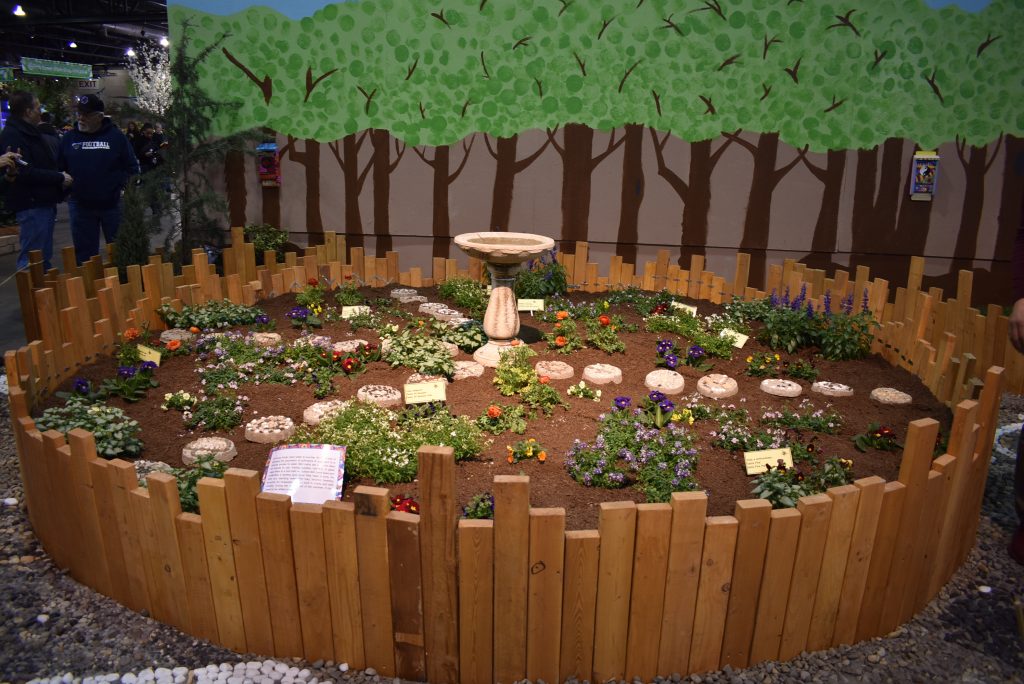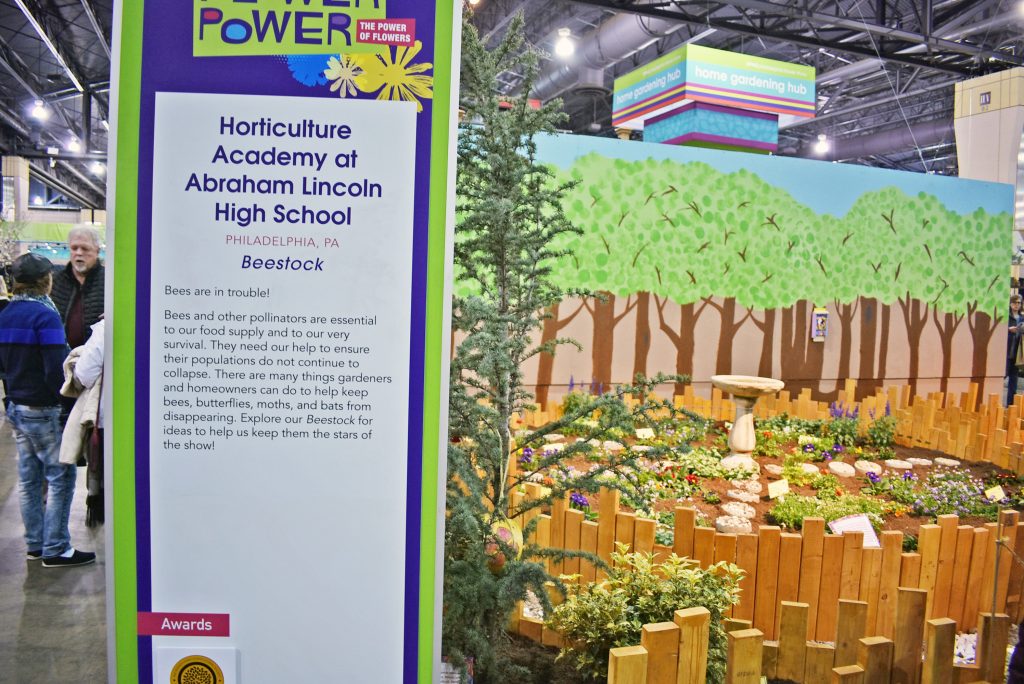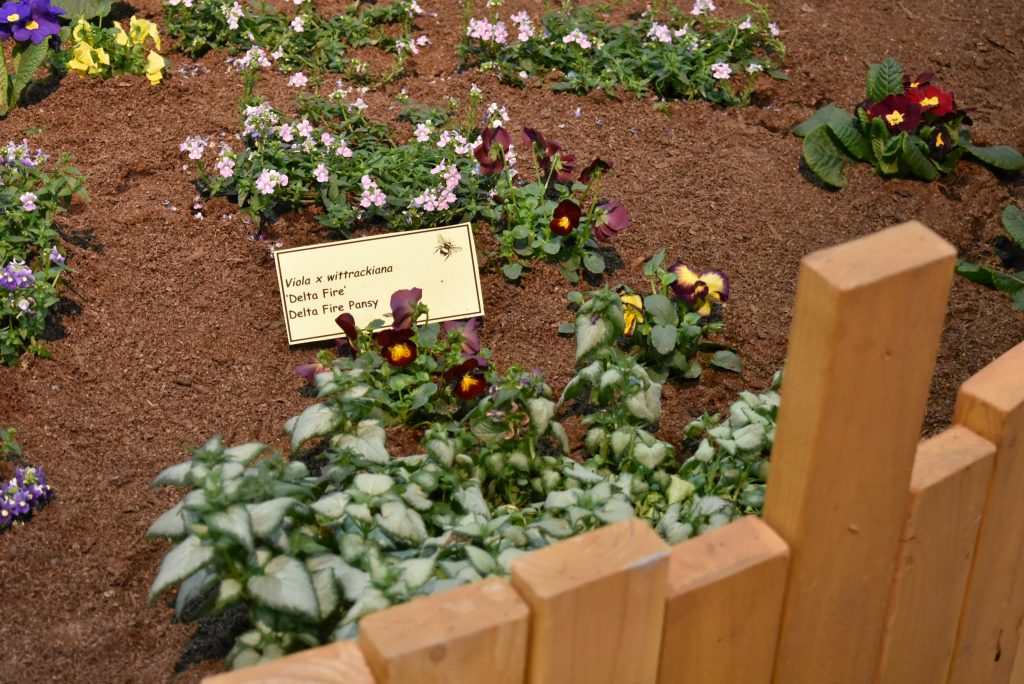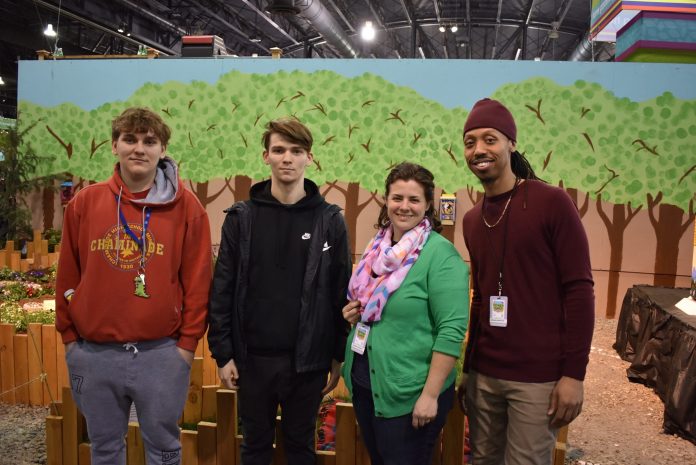This year’s Philadelphia Flower Show may have been themed around flower power, but students and teachers at Abraham Lincoln High School chose to highlight the power of bees.
Teachers and students at the school’s Horticulture Academy created a display titled Beestock, which drew attention to bees and other pollinators that are facing threats to their population. The display was modeled after a standard home garden, and included tips to keep bees “the stars of the show.”
“Even if you just put out sugar water in a water fountain and something to stand over it, because bees can’t stand on water, bees need to stay hydrated,” said junior Ariel Hill. She said the sugar water can be left on a windowsill or in a bird fountain.
Lincoln has been creating displays for the show for about 30 years, and this is the fifth time teacher Nora Melley has been involved. Melley, who recently became a beekeeper, wanted to fuse beekeeping with the show’s theme, while first-year teacher Lance Blackwell designed the display. It was reminiscent of a typical garden in a backyard, with a bird bath at the center of a peace sign formed by stepping stones.

“It’s a project that involves all of the kids,” said Melley, who teaches sophomores through seniors. “Some of them are growing the plants, some of them are constructing the display, and some of them are writing the pamphlets.”
Blackwell, who has a background as a landscape architect, highlighted the work the students put into painting the background and their overall contribution to the display.
Junior Nick D’Agostino said the project gave him experience in construction and taught him the importance of bees.
“We really need bees to pollinate our plants and especially our food,” he said.
The display won a bronze medal in the show’s high school category.
In addition to putting out sugar water for bees, the display encouraged people to get involved by filling their gardens with plants that will provide nectar for bees, butterflies and hummingbirds. They list asters, bee balm, columbine, cosmos, lavender, milkweed, purple coneflower and shasta daisies as some of the plants people can grow in their gardens that would help. They also said late summer is a “dearth” for bees and nectar-loving insects, so planting flowers that bloom in that time ensures a food source.
The Horticulture Academy at Abraham Lincoln is a three-year Career and Technical Education program that provides students with specialized instruction, laboratory training and field experience in the green industry to prepare them for careers in floral design, landscaping and more. ••







